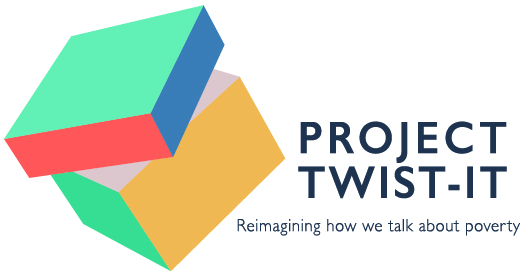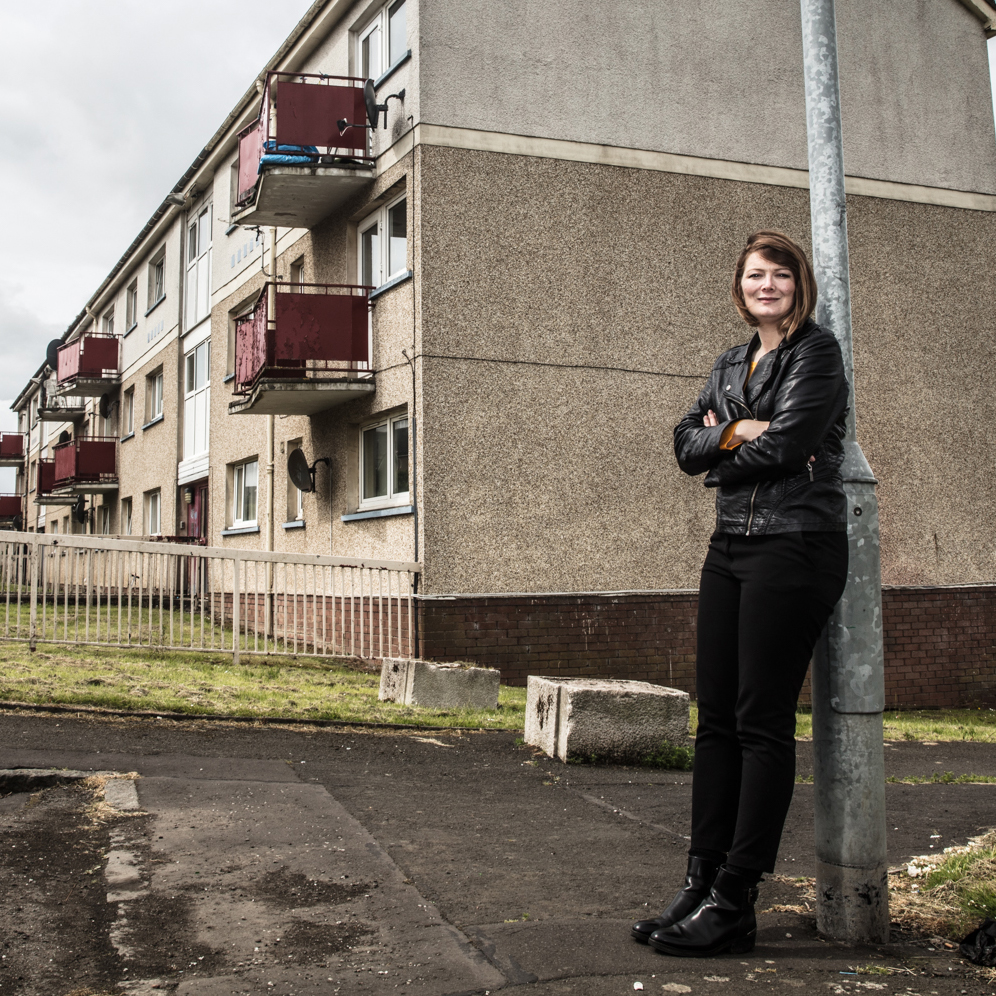Kerry Hudson
“ There are many, many ways this narrative is perpetuated, and I think we all have a role in interrogating those lazy stereotypes, in seeing where we benefit from that structure and understanding our own privilege and using that to dismantle those inequalities where we can.”
The award-winning novelist Kerry Hudson is the first of an incredible group of writers and artists contributing to Project Twist-It EVERY MONTH on our blog page with reflections on their work and how, collectively, we can transform the way we talk about poverty. Check out her work!
Follow Kerry on Twitter @ThatKerryHudson
Use Your Voice
KERRY HUDSON ANSWERS QUESTIONS FOR PROJECT-TWIST IT
“I grew up believing (because I was so frequently told) that what I had to say meant nothing.”
Tell us a bit about your work? How would you summarise it?
I write novels and narrative nonfiction which focus on the stories of those who are poor and marginalised. Ordinary people living extraordinary, fascinating lives – as I think most folk are if we look beyond the surface.
What are you working on currently?
Lowborn is released on May 16 2019 – preorder from Amazon here
I’m currently finishing up my first work of nonfiction, Lowborn: Growing Up, Getting Away and Returning to Britain’s Poorest Towns. It’s a book that will see me revisit the towns in Scotland and England that I grew up in and see how things are now for those deprived communities. It’s part memoir, part exploration of what it is to be poor then and now.
Which themes appear most often in your work and why?
I’m most interested in the interior worlds of those who don’t normally get to take the lead in fiction. I know that lives on lesser walked streets are full of love, laughter, hope, fear, tenacity and, most of all, a humanity we can all learn from. Growing up, I wanted to find books that would reflect that – my - world and when I struggled to find them I decided to write my own.
What inspires you most?
Real life. Interactions with, and observations of, strangers. I always say I like living first and writing second and that’s never changed for me. Watching the way people behave with each other, the way someone wears their daily struggles, small kindnesses, those are the things that keep me writing.
Why does telling stories – whatever the medium – matter?
I came from a childhood that should have provided very little hope or future but access to libraries and stories helped me understand the dysfunctional tangle of that childhood and helped me realise the world was big, that there were millions of experiences and people and that it was mine to explore. At their best stories help us understand ourselves, others and the world around us.
Describe your ambitions for your work going forward. Why is it important to write about poverty and to tell stories that relate to it?
I grew up believing (because I was so frequently told) that what I had to say meant nothing. I left high school at fifteen with not even a GCSE to my name. That I would somehow have got to a position where I might have a platform to talk about things that matter to me seems miraculous. My greatest hope now is to use that good fortune to keep on resisting, to persist against the idea that poverty is shameful, that It is an individual fault and not structurally created. I hope girls like me will read my work and know they are capable of so much more than they’re told they are.
How can stories and narrative using fiction inform our understanding of poverty and the people who experience it?
I really think it’s about engendering empathy. One of the reasons I decided to move away from autobiographic fiction and towards writing about my own life factually was because I think people need to hear someone say, ‘this happened to me’ and to understand it could be them, or their sister or their neighbour. It breaks down negative perceptions and equalises and those are the first steps I believe.
What do you think are the biggest myths in our culture surrounding poverty?
As I said above, that belief that it’s due to individual failure and culpability rather than structural inequality. There are many, many ways this narrative is perpetuated, and I think we all have a role in interrogating those lazy stereotypes, in seeing where we benefit from that structure and understanding our own privilege and using that to dismantle those inequalities where we can.


